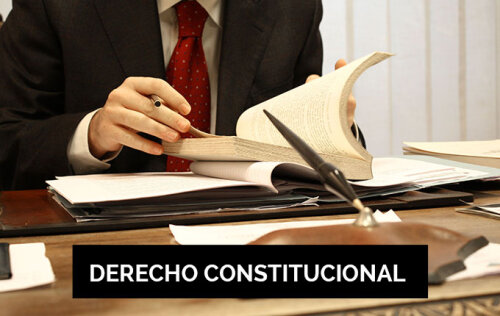Best Child Support Lawyers in Pereira
Share your needs with us, get contacted by law firms.
Free. Takes 2 min.
Free Guide to Hiring a Family Lawyer
List of the best lawyers in Pereira, Colombia
About Child Support Law in Pereira, Colombia
Child support, known locally as "cuota alimentaria", is a legal obligation requiring parents to provide for the needs of their minor children or, in some cases, adult children unable to support themselves. In Pereira, Colombia, child support laws ensure children receive financial assistance for essentials such as food, housing, education, healthcare, and clothing. The process is governed by Colombian family law and is enforced through specialized family courts. Both parents have shared responsibility for child support, regardless of their marital status or relationship with each other.
Why You May Need a Lawyer
Engaging a lawyer can be very beneficial when dealing with child support matters in Pereira. The following are common situations when legal help is recommended:
- Disputes over the calculation or adjustment of child support amounts
- Enforcement actions when a parent fails to pay court-ordered support
- Establishing legal paternity for child support purposes
- Assistance with modifying existing child support agreements due to changed circumstances
- Navigating communication with family courts and drafting legally compliant documents
- Resolving cross-border child support cases when one parent lives abroad
- Receiving guidance through mediation or negotiation processes
Local Laws Overview
In Pereira, child support is regulated mainly by the Colombian Civil Code and the Children and Adolescents Code (Código de Infancia y Adolescencia). Key aspects include:
- Both parents, whether married or not, must support their children until they turn 18, or until 25 if the child continues in formal education and depends economically on their parents.
- The amount of child support is calculated based on the needs of the child and the income and financial capacity of both parents.
- Court-ordered child support arrangements are enforceable, and failure to pay can lead to legal penalties such as wage garnishment, asset seizure, or even criminal charges in severe cases.
- The local Family Commissariat (Comisaría de Familia) or family courts handle child support cases.
- Child support agreements can be established voluntarily between parents or mandated by a judge if an agreement cannot be reached.
- It is possible to request modifications to child support agreements if there are significant changes in either parent's financial situation or in the child’s needs.
Frequently Asked Questions
What is the legal age up to which a parent must pay child support in Pereira, Colombia?
Generally, child support must be paid until the child reaches 18 years of age. However, if the child continues higher education and depends economically on their parents, support can extend up to 25.
Can I file for child support if I was never married to the other parent?
Yes. Child support obligations exist regardless of the parents’ marital status. The principle is to guarantee the child’s rights.
How is the amount of child support determined?
The amount is set based on the child’s needs (food, clothing, education, health, housing) and the economic capacity of both parents. Courts review financial evidence from both parties.
What should I do if the other parent stops paying child support?
You can request enforcement through the Family Commissariat or local courts. They can impose penalties, such as wage garnishment or asset seizure, to ensure compliance.
How do I request a modification of an existing child support order?
A formal petition must be filed with the court that issued the original order, demonstrating a significant change in income or in the child's needs.
Can child support orders be enforced if the non-paying parent lives outside Colombia?
Yes, but the process may take longer and is more complex, often requiring international legal cooperation. Legal assistance is highly recommended in such cases.
Do I need to prove paternity to claim child support?
If paternity is disputed, the court may order a DNA test or consider other evidence to establish parental responsibility before imposing child support.
Is it possible to reach a private agreement for child support without going to court?
Yes, parents can agree privately, but the agreement should be formalized before the Family Commissariat or court to ensure enforcement.
What happens if a parent cannot pay the court-ordered support amount?
The parent should seek a modification through the court, providing evidence of their changed financial circumstances. Unilateral reduction or non-payment can result in sanctions.
What needs are covered by child support in Colombia?
Child support is intended to cover essential needs such as food, housing, clothing, education, healthcare, recreation, and other necessary expenses for the child’s well-being.
Additional Resources
If you need further assistance or information about child support issues in Pereira, consider reaching out to these resources:
- Comisaría de Familia de Pereira - For mediation, counseling, and preliminary legal processes concerning child support
- Juzgado de Familia de Pereira (Family Court) - For filing or responding to judicial child support claims
- Instituto Colombiano de Bienestar Familiar (ICBF) - Provides guidance and protection for minors’ rights
- Legal aid clinics (consultorios jurídicos) at local universities - Offer free or low-cost legal advice for family law matters
Next Steps
If you require legal advice or wish to take action regarding child support in Pereira, follow these steps:
- Gather all relevant documents, such as birth certificates, evidence of income and expenses, and any previous agreements or court orders.
- Contact the Comisaría de Familia or a legal aid clinic for initial guidance and information on your rights and responsibilities.
- If informal discussions with the other parent do not resolve the issue, file a formal petition with the Family Court or Commissariat.
- Consider consulting with a qualified family law attorney who knows local procedures and can represent your interests effectively.
- Stay informed, comply with all court procedures and deadlines, and make sure to formalize any agreement through the appropriate legal channels.
Prompt action and seeking professional legal advice can help protect your rights and ensure the well-being of your child in accordance with Colombian law.
Lawzana helps you find the best lawyers and law firms in Pereira through a curated and pre-screened list of qualified legal professionals. Our platform offers rankings and detailed profiles of attorneys and law firms, allowing you to compare based on practice areas, including Child Support, experience, and client feedback.
Each profile includes a description of the firm's areas of practice, client reviews, team members and partners, year of establishment, spoken languages, office locations, contact information, social media presence, and any published articles or resources. Most firms on our platform speak English and are experienced in both local and international legal matters.
Get a quote from top-rated law firms in Pereira, Colombia — quickly, securely, and without unnecessary hassle.
Disclaimer:
The information provided on this page is for general informational purposes only and does not constitute legal advice. While we strive to ensure the accuracy and relevance of the content, legal information may change over time, and interpretations of the law can vary. You should always consult with a qualified legal professional for advice specific to your situation.
We disclaim all liability for actions taken or not taken based on the content of this page. If you believe any information is incorrect or outdated, please contact us, and we will review and update it where appropriate.













